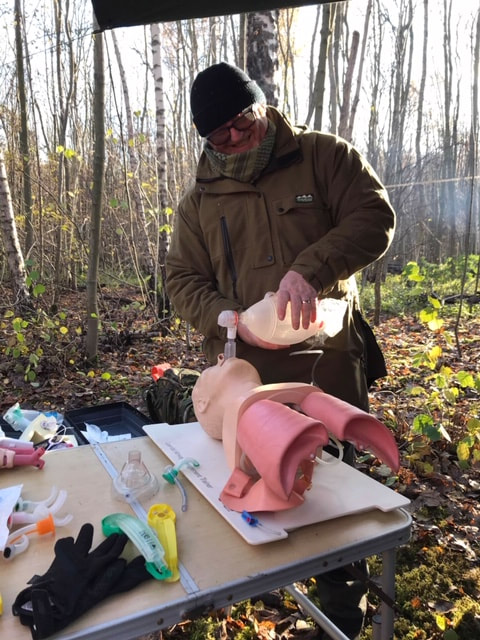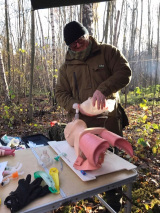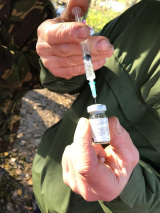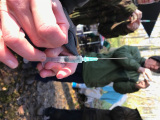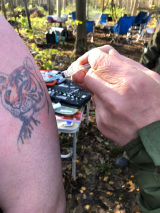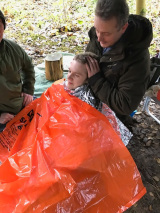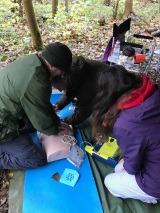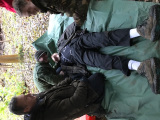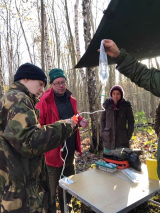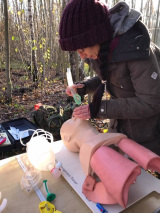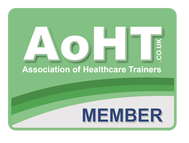- Expedition Medic
- >
- Expedition Medic Course (Medical) Day 1 of Weekend
Expedition Medic Course (Medical) Day 1 of Weekend
Next courses
22nd July 2023, Broughton, North Lincolnshire
Our course conforms to The Royal College of Surgeon of Edinburgh (2015) Expedition Medic Competencies Framework for providers, who are not health care professionals.
Course Content
Upon successful completion of the course candidates will be able to perform examination of key body systems and be able to record and understanding the importance of changes in vital signs.
Candidates will have an overview of and be able to recognise and diagnose a range of conditions, provide immediate emergency treatment and make rational decisions on need and mode of evacuation. Improvising equipment as needed from materials at hand.
Faculty
Our instructor faculty includes healthcare professionals with a longstanding interest in wilderness medicine.
Use of Prescription only medication (POM)
Upon successful completion of the course candidates will be able to purchase medical kits including selected Prescription only medication (POM) to deal with the variety of injuries and illnesses studied during the course. This is possible through our links with a travel Pharmacy.
Medication is supplied for emergency use during foreign travel when access to professional help is not available or may be significantly delayed. It can also be used to manage minor illness and Injuries that do not require evacuation. Where possible it should be used in consultation with a professional either in person or remotely via a communication link.
Medication available post course include a range of Antibiotics, Analgesia and medication to treat dizziness, nausea, constipation, indigestion, diarrhea, dehydration, asthma and allergic reactions.
Partner Organisations
We are also looking for partner origination's to host our expedition medicine and Outdoor First Aid courses.
PRIMARY CARE
Cardiovascular: Cardiac pain and TIAs and CVAs, including FAST Assessment
Respiratory:
Assessment of the respiratory System,
Asthma, Pneumonia, Bronchitis Pulmonary Embolism.
Endocrinology:
Diabetes, Measuring Blood Glucose Levels
Gastrointestinal:
Assessing 'acute abdomen' and management of diarrhoea, constipation, nausea and vomiting, Urinary Tract and Kidney Infections.
ENT:
Nose bleeds, Sore throat, sinusitis, earache, motion sickness. dizziness and vertigo,
Infectious disease:
meningitis, cholera, meliodosis, leptospirosis, rocky mountain spotted fever, typhus group, Q fever, coxiella endocarditis and tick fevers, chlamydia, gonorrhoea, syphilis, epididymo-orchitis
Dermatology:
Acne and soft tissue Infections
Allergy:
Allergic reactions and anaphylaxsis
Immediate Life Support (ILS):
Identify the causes and promote the prevention of cardiopulmonary arrest;
Recognise and treat the deteriorating patient using the ABCDE approach;
Facilitate initial leadership and effective team membership
Airway:
Use of suction
Use of Oral, Nasal, I-Gels
Defibrillation:
Safe use of an Automated External Defibrillators (AEDs) and perform quality CPR
Administration of oxygen:
Safely configure an oxygen system for use
Free-flow oxygen application (with correct mask choice)
Use of mouth-to-mouth/, pocket-mask and Bag-Valve-Mask ventilation
Prerequisites
A minimum qualification of a 16 hour Outdoor First Aid Course completed within the year before the start of the course is required before attending this course. Other qualifications may be acceptable please inquire.
Assessment
Precourse reading will be supplied two weeks before course and a pre and post course test will need to be completed. Competence in practical skills is also assessed during the course.
Certification:
Course CPD certificate and Intermediate Life Support (ILS)
